Supplementary Professional Education: A Strategy for Survival
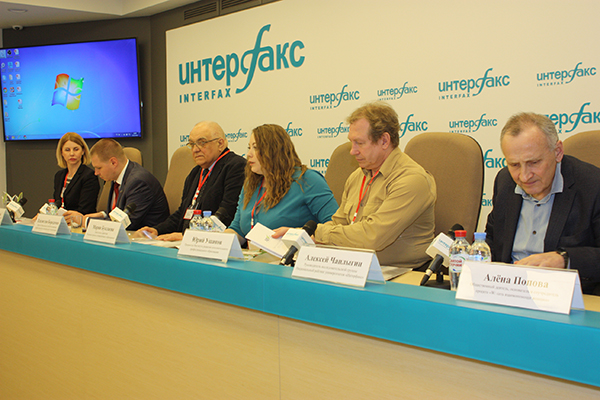
In present-day conditions, the system of supplementary professional education becomes a powerful socio-economic tool. For the state and industry, this is a tool for training, retraining and adaptation of skilled personnel for new industries and technologically renewed production facilities. For citizens, including those in the assumed «risk zone» (representatives of «dying» professions, people nearing retirement age and women on maternity leave), this is an opportunity to build a career and improve individual wealth.
How things stand with implementation of this strategy in Russia and how the system of supplementary professional education can be turned into a rapid response force, rather than a slow down force-all this was discussed at the round table «SPE: Growth Points in the Context of Continuing Education» organized by Accreditation in Education company with support from the Interfax News Agency.
Agenda
In January 2019, the Global Commission on the Future of Work of the International Labor Organization (ILO) published the report “Work for a Brighter Future.”[1] Experts warn that there will be sea changes in the world of work, which will require a collective response on a global scale, and suggest that we should adopt a new approach which puts a person and their work at the center of business practice, economic and social policy. Thus, the international agenda for continuing education sets a particular tone, pointing to extraordinariness of the situation, which is actually confirmed by the authors themselves, who stated in the introduction to their report that they strived to highlight the urgent nature of the changes happening in the world of work.
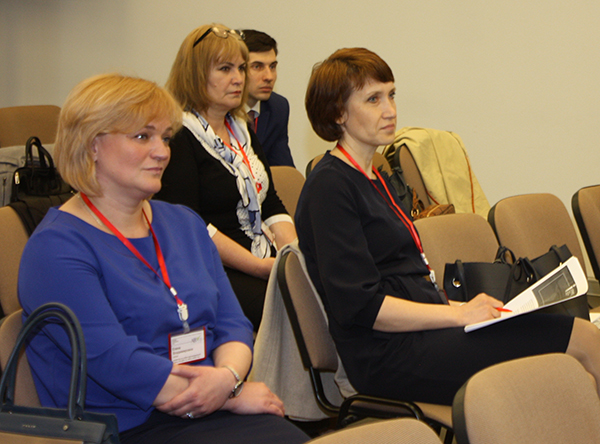
Russian experts, in their turn, are also adamant. For example, the specialists of the Center for Strategic Research and National Research University Higher School of Economics emphasize in the joint report “Twelve Solutions for New Education”[2] that Russia's place in the global order by 2050 is determined by what will be happening in 2018-2024 in our kindergartens, schools, colleges and universities, in the field of continuing education. As we can see, there are strict deadlines for making necessary decisions– only five-six years will determine what Russia will be like by the middle of the XXI century.
The hypothesis that «emergency measures» are needed to support and develop the national education system, in particular, the SPE system as one of its key sectors, was brought up by the organizers for discussion at the round table. Among invited speakers were Vladislav Borodachev and Yuri Ushanov, members of the Expert Committee on Supplementary Professional Education and Corporate Training, Supplementary Adult Education at the State Duma Committee on Education and Science.
Real opportunities
Answering the question from the round table moderator Maria Buklaeva whether the Russian SPE system is ready for «sea changes in the world of work» predicted by ILO specialists, Vladislav Borodachev emphasized readiness to respond to the occurring changes at any moment.
The expert of the National Council under the President of the Russian Federation on Vocational Qualifications spoke about the system of continuing adult education established until 1991 and evolvement of the National Qualifications System (NQS)[3] in Russia. In the speaker’s opinion, May orders of 2012, related to the need for employers' involvement in the SPE system development process, became an extremely «timely and reasonable step.» In particular, a task was set before employers to influence the system of university training, to be able to correct educational programs and to assess teachers’ performance from the perspective of their professional competence.
According to Vladislav Borodachev, to develop the Russian SPE system, it is of utmost importance that we create all necessary structural elements of NQS in the constituent entities of the Russian Federation and resolve all organizational and financial issues related to the management of the retraining and advanced training system by employers and qualification assessment in the regions at the industry level. This should be done as soon as possible, in 2019. Many things will be also clarified after adopting the Strategy for Development of the National Qualifications System until 2030. Meanwhile, as the speaker summarized, «we are lagging somewhat behind, but in general we are doing the right thing.»
Yuri Ushanov, Deputy President of the Federation of Restaurateurs and Hoteliers of Russia, Chairman of the Central Expert Board of the CVQ[4] of hospitality industry, disagreed with this statement. Reasoning about readiness of the Russian SPE system for global challenges of modernity, the speaker emphasized that today's Russia is working proactively in this area. Besides, there are no limitations (and if any, they only exist in people’s heads) for the implementation of all requisite measures by employers, representatives of the CVQ and developers of professional standards, moreover, the state and private sectors are ready to invest real amounts in the continuing education system. In proof of his statement, Yuri Ushanov announced «yummy» figures – the funds allocated as part of the project «Implementation of Extra Measures to Reduce Unemployment in the Areas of the North Caucasus.»
He considers that, when the state allocates about 45-50,000 rubles per person under a SPE program lasting for 250-300 hours, this is a pretty good figure (by contrast, there are programs that only require 3,000 rubles per person).
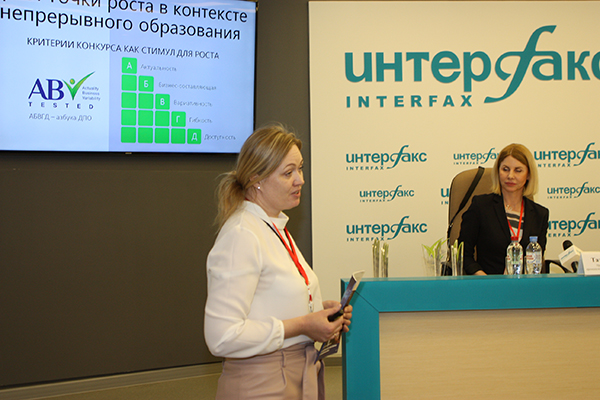
Talking about employers' investments, the expert placed emphasis on the fact that in the sphere of hotel business the process of so-called «further training» is constantly underway:
– Practically all owners of the hotels located in this street (Tverskaya Street. – Ed. note) invest funds in staff training. What is more, they provide so-called «further training» under SPE programs for people with higher and secondary professional education in order to adapt to the requirements.
Manage and trust
Vice-Rector for Marketing of Pastukhov State Academy of Industrial Management Tatiana Fedoseeva came up with recommendations on what educational institutions should do not only to comply with employers' requirements, but also to gain a commendable reputation. She presented the QM & GOAF model[5] developed by the academy in cooperation with its European partners based on integration of the approaches to the quality of higher education according to ISO 9001:2015 standard and the Common Quality Assurance Framework (CQAF).
What can be implemented using the model? First of all, emphasis can be shifted from quality evaluation at the program level to management of the quality of the entire educational institution, i.e. the groundwork can be laid for assuring the quality of each educational program in accordance with employers’ needs. Today it is recommended to apply the QM & GOAF model for Russian educational institutions, and 100 of them have already tested this model.
The model application guide developed as part of the project «565454-EPP-1-2015-1-HR-EPPJMO NETWORK» (see Fig. 1) contains recommendations on how educational institutions should build quality assurance models based on the PDCA cycle: Plan, Do, Check, Act. It is envisaged that the full cycle should be followed as part of each of 16 model aspects (goal-setting, teaching methods, informatization, interaction with employers, and others).
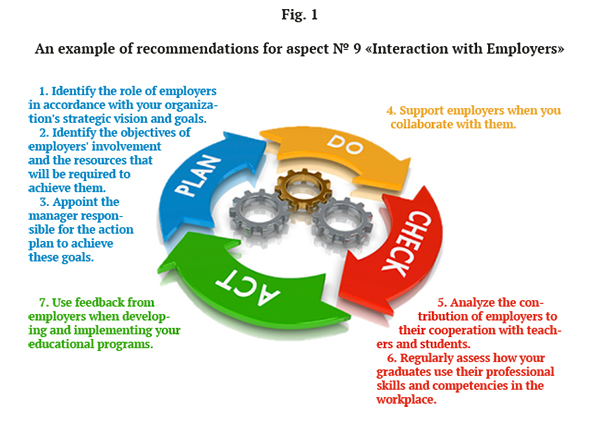
In addition to the guidance manual, the Quick Scan electronic questionnaire «Application of the QM&CQAF Quality Assurance Model in Higher Education» was designed. HEIs represented by all categories of employees can use this online tool for self-examination and get a general sense of the organization's performance as well as recommendations for introducing the model and improving the organization's performance.
Nikita Golunov, Vice-Rector for Continuing Professional Education of Gubkin Russian State University of Oil and Gas also spoke about SPE growth points in the context of educational institutions' performance. The speaker proposed that one should give a straight marketing and quality-related answer to three questions: where we are and what we can do, what an employer wants us to do and if we can do this.
In the speaker's opinion, for correct (and effective) work with employers educational institutions must make an effort and leave their shell and also clearly understand that all this is aimed at doing good for the country and society. The point is whether the changing environment allows us to effectively train people who are able not only to perform certain functions, but, at the same time, to invite confidence by the changes being made. And this is not only about the education sector, but also about each of us.
Reasoning about difficulties typical of SPE, when, for example, heads of universities think whether they should keep supplementary professional programs in their curriculum or not, the speaker gave an example, though seemingly far from today’s agenda, from the history of the Faculty of Mechanical Engineering (the university celebrated the anniversary of this faculty in 2018):
– Today we are facing problems, we lack strength and are short of time, but our parents found emotions, strength and time even in the midst of the war. They realized that we would win, the war would be over, there would be a need for new specialists in the new world, and how, when and where we would train them.
Nikita Golunov finished his speech on a really positive note:
– When we complain that we feel distressed (and I don’t always agree with this), we are partially stretching the truth here. I think that we can find inner strength and reserves to do a lot more for our education system and our country.
In focus of interests
The fact that SPE is a highly topical and socially resonant subject was once again confirmed in the reports presented by the leader of the research team of the Interfax National University Ranking Alexei Chaplygin and the civic activist Alena Popova.
Thus, Mr. Chaplygin presented an outlook on the SPE system for 2018, talking about the dynamics of the interest in this subject in mass media. The upsurge in autumn was naturally related to active involvement in national projects, where the issues of supplementary professional education were properly covered[6]. There is a rather steady focus on business education, and it has been observed over the last fifteen years. As to continuing education in general, it arouses far less interest, though it is rather steady from the perspective of ups and downs.
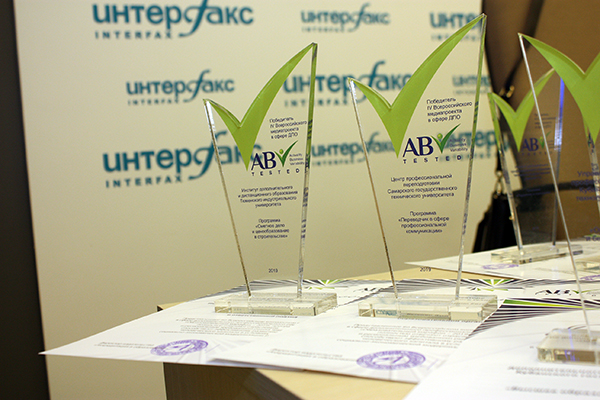
- Institute of Advanced Training and Professional Retraining of Education Employees of Tula Region (five programs)
- Krasnoyarsk State Pedagogical University named after V. P. Astafyev (one program)
- Kuban State Technological University (three programs)
- National Research Tomsk State University (twenty programs)
- Gubkin Russian State University of Oil and Gas (National Research University) (SPE entity – the Center of Innovation Competencies and one program)
- Samara State Technical University (one program)
- Saint Petersburg State University of Industrial Technologies and Design (one program)
- Yuri Gagarin State Technical University of Saratov (one program)
- Saratov Socio-Economic Institute (Branch) of Plekhanov Russian University of Economics (one program)
- North-Eastern Federal University named after M. K. Ammosov (one program)
- North-Caucasus Federal University (six programs)
- University of Technology, Moscow Region (three programs)
- Industrial University of Tyumen (two programs)
- Tyumen State Medical University (one program)
- Chechen State University (one program)
A steady focus on SPE for retirement-age people and people nearing retirement age over the last year and a half looks rather surprising for analysts. At the same time, despite the pension reform announced in 2018, there was no special upsurge of interest in universities of the third age (in other countries they are constantly discussed and are in focus of interests of mass media, and not only specialized ones).
Characterizing the «SPE in National Projects» indicator, the expert noted that the national project “Education” predicts an increase in the number of attendees getting SPE. The share of SPE in the field of academic staff training is also supposed to increase, and there are plans for more active participation of educational programs in the procedures of professional-public, international accreditation. By the way, today only five universities have had their supplementary professional programs accredited by international or Russian accreditation agencies. And the leader here is National Research University Higher School of Economics that has had all (!) SPE programs accredited. It is also one of the leaders by the audience coverage by online courses as an important part of SPE. As to financial leadership, the leader among the universities in 2018 was RANEPA that earned 17% of its budget thanks to SPE business education programs.
Alexei Chaplygin also mentioned the National University Ranking in his report. As we know, one of parametric indicators of this annual study – «Social Environment of University» – includes a number of items directly related to the performance of universities' structural SPE units.
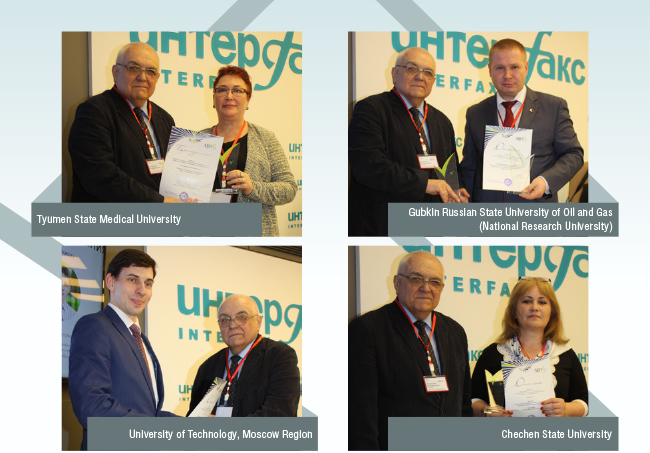
According to Chaplygin, up to now, for ten years already, universities’ performance in the field of supplementary education has been evaulated as part of the «Social Environment of University» parameter, but, in general, SPE must be considered as a component of the university's educational activities. Over time, we will certainly take into account the National University Ranking, meanwhile, we consider it, in the first instance, as a weighty socialization effect added to supplementary education programs.
After reflections about the role of employers and educational institutions in the development of the SPE system in Russia, the talk turned to the people who are being trained at the moment or will be trained in the future. Those who are socially vulnerable today, but are powerful labor force in fact, i.e. pre-pensioners and pensioners, new mothers and citizens risking to lose their job in the context of economy digitalization.
At the beginning of her report, the well-known women’s rights advocate Alena Popova quoted the data from the National Strategy of Action in the Interest of Women[7]. According to the document, Russian women's salary is one-third lower than men’s salary, and women on maternity leave are the most financially unprotected category (67% of 21 million poor people in Russia are women with children). Despite the fact that the level of Russian women’s education is very high (according to the Russian Federal State Statistics Service, more than 50% of our female compatriots have a university diploma), after taking a child care leave many of them do not come back to work for a long time, becoming professionally unfit and, consequently, unprosperous. Nevertheless, the problem is being solved already. As part of the W[8] project, created by Alena Popova in cooperation with the deputy editor-in-chief of Russian Reporter Magazine Marina Akhmedova, the specialists analyze the level of salary in regions, make predictions as to which professions of the future will be definitely sought-after when a woman is back from her maternity leave, cooperate with representatives of constituent entities of the Russian Federation.
The second socially vulnerable category of citizens from among those mentioned by the speaker comprises pensioners and pre-pensioners, «whom employers want to dismiss and replace by young people.» In the meantime, people of «the third age» can be considered «the gold reserve» of Russia without exaggeration, and in a situation where, according to the officials, «the country lacks labor force,» it is at least unreasonable to neglect such human capital.
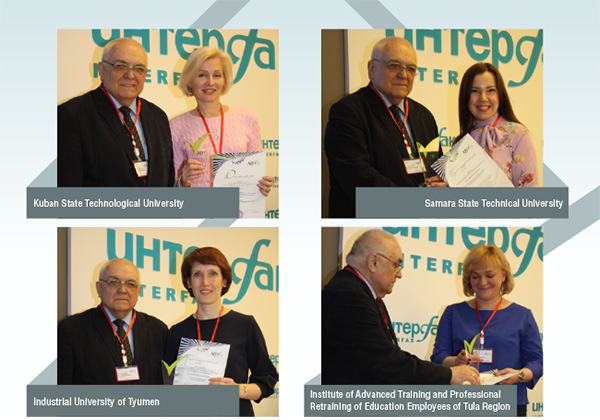
This is certainly not to say that nothing is done for this category of citizens, when it comes to professional adaptation to new socio-economic conditions. At the same time, the same retraining programs (and teachers) are often inappropriate as they do not take into account attendees' peculiarities, for example, medical contraindications. It is a strange idea to put pensioners in front of a blinking screen to retrain them as programmers, when people with poor eyesight must not spend more than four hours on the computer according to the special standard. Come to think of it, does it make sense to train them for new technology-intensive professions, when strategically important sectors – from agriculture to space industry – face acute shortage of skilled personnel? Indeed, pensioners, who got solid Soviet education, are exactly the very «hopefuls of the national economy.»
Alena Popova summarized her speech by stating that today there is an enormous number of pensioners in Russia that must be trained. We have no professions that would take into account the realia of Russian economy. There is a problem with employment of new mothers. Popova suggested that the audience «should try to elaborate the proposals for pensioners/pre-pensioners and women on maternity leave, rather than train/retrain them for so-called professions of the future, without regard to psychophysiological and other peculiarities.»
P.S. We haven't dotted the i's and crossed the t's yet in SPE… We support the speaker’s initiative and suggest continuing the discussion on the pages of the journal. You are welcome to ask questions, propose initiatives, submit articles for publication.
Lyudmila SULDINA.
[1] Read more: bit.ly/ao111DPO1
[2] Read more: bit.ly/ao111DPO2
[3] Read more: bit.ly/ao111DPO3
[4] Council on Vocational Qualifications.
[5] Read more: bit.ly/ao111DPO4
[6] For example, the project «New Opportunities for Each Person,» which is part of the national project «Education,» suggests that the system should be created to allow each working person to continuously update their knowledge and acquire new professional skills. There are plans to increase the number of citizens undergoing continuing education programs at educational institutions of higher education up to 3 mln. people by 2024. Read more: bit.ly/ao111DPO5
[7] Read more: bit.ly/ao111DPO6
[8] Read more: http://wproject.org